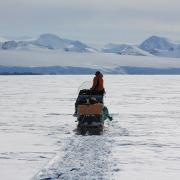Creating climate solutions requires connections, partnerships and cross-disciplinary approaches. At CU Boulder, we lead across all fields of climate research: adaptation and innovation, policy, natural hazards, human impacts, and climate science. Stay up to date on our groundbreaking research and technological advancements.


